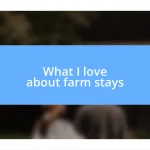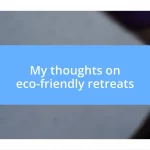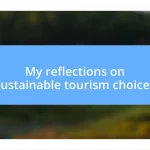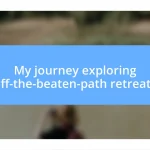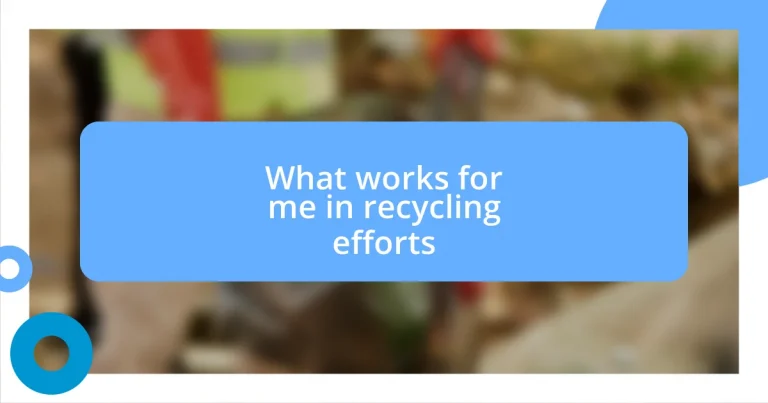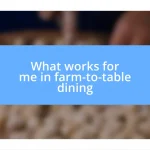Key takeaways:
- Recycling significantly reduces pollution, conserves natural resources, and supports local economies by creating jobs.
- Effective recycling strategies include education on local guidelines, organizing recycling spaces at home, and participating in community initiatives.
- Engaging the community through challenges, upcycling projects, and storytelling can inspire collective action and increase awareness about recycling practices.
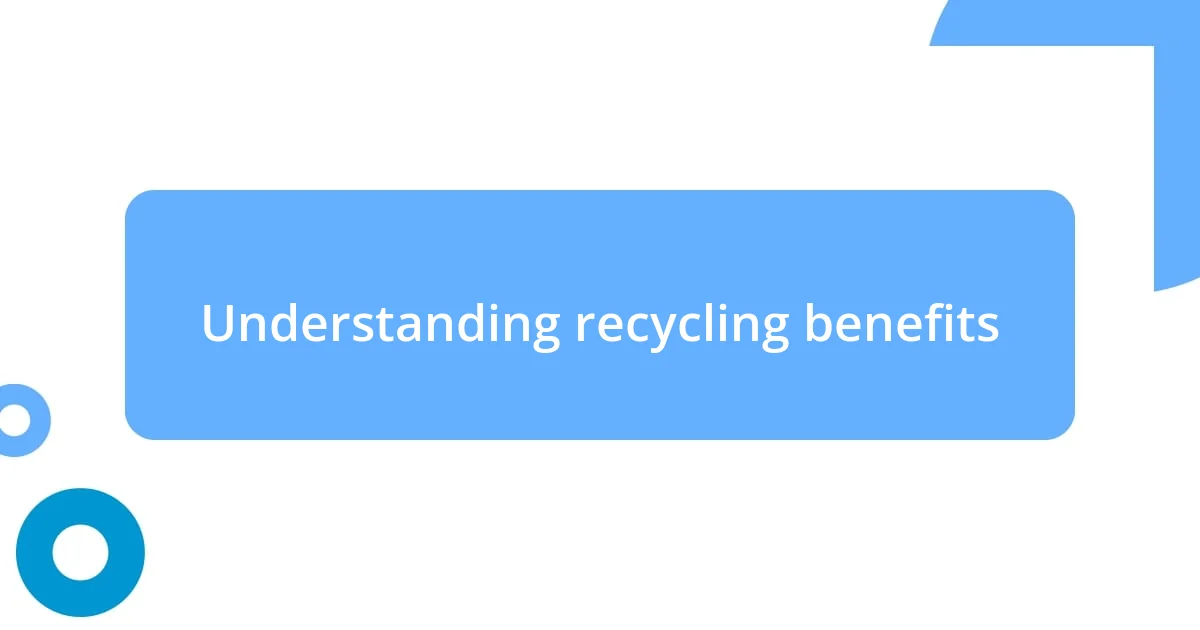
Understanding recycling benefits
Recycling offers an incredible array of benefits that extend beyond just tidying up your local environment. I still remember the first time I realized that by recycling just a few simple items, I was contributing to a much larger effort in conserving natural resources. It was a light bulb moment for me—how could something so small make such a significant impact?
One of the most rewarding aspects of recycling is knowing that I’m helping to reduce pollution. When I think about how many fewer greenhouse gases are emitted when we recycle materials like paper and plastics, it gives me a sense of empowerment. Isn’t it fulfilling to think that every soda bottle I toss into the recycling bin is a step toward a cleaner planet?
Moreover, recycling can boost the economy and create jobs. I was surprised to learn that recycling industries provide millions of jobs and can even support local economies. Reflecting on this, I often think about how my simple act of recycling could support someone’s livelihood, and it inspires me to stay committed to my efforts! Could there be a better motivator to choose recycling over tossing things away?
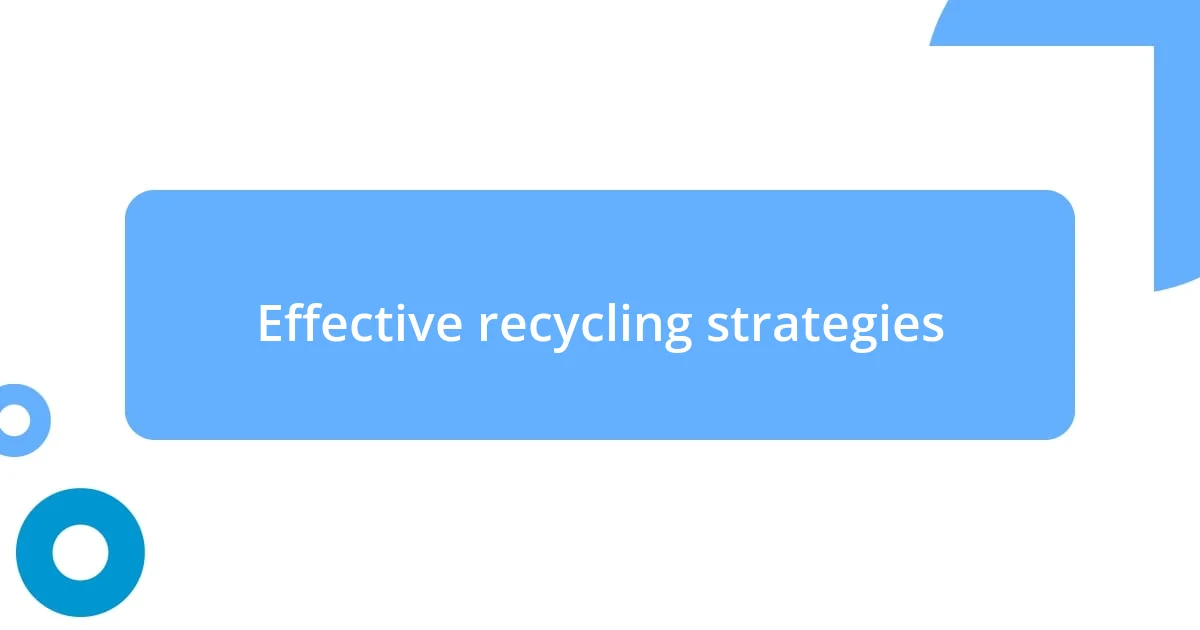
Effective recycling strategies
When I think about effective recycling strategies, I can’t help but emphasize the importance of education. It was enlightening for me to attend a local recycling workshop; knowing what can and cannot be recycled transformed my approach. Understanding the specific guidelines in my area makes me feel like I’m a part of a well-oiled machine, rather than just tossing things in a bin without a second thought.
Another strategy that has worked wonders for me is creating a dedicated recycling space at home. I set aside a corner in my utility room for different recyclables, labeling each container clearly. By making the process visually organized, I find it easier to sort my waste. There’s something satisfying about seeing those bins fill up with items that will find new life instead of ending up in a landfill.
Lastly, I’m a firm believer in the power of community initiatives. Participating in local clean-up days has not only helped me recycle but also connected me with like-minded individuals who share my passion. I remember one particular event where we collected enough bottles to fill a small truck! It was a pivotal moment for me, realizing how collective efforts amplify individual actions.
| Strategy | Description |
|---|---|
| Education | Attending workshops or reading guides about local recycling rules. |
| Dedicated Space | Creating an organized area for different recyclables at home. |
| Community Initiatives | Participating in local recycling events and clean-up days. |
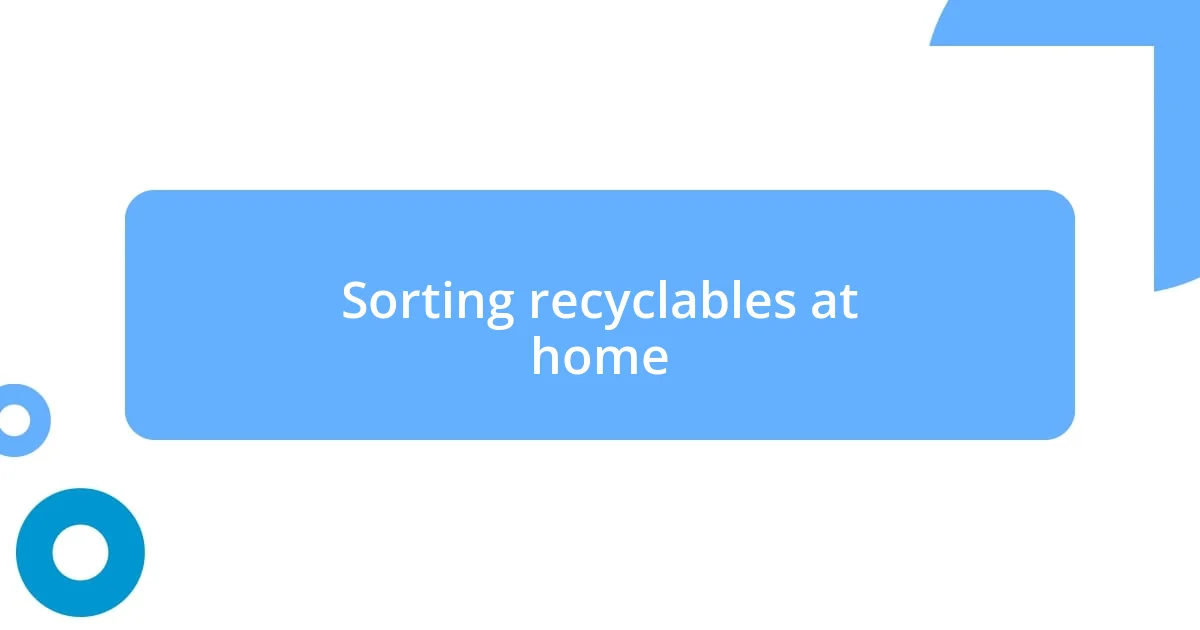
Sorting recyclables at home
When it comes to sorting recyclables at home, I’ve found that having a straightforward system is essential. I remember the chaos of trying to figure out what to toss where, which often led to me stressing out about whether I was doing it right. To simplify, I separated my recyclables into categories that made sense and felt manageable. This small change made a world of difference.
Here’s how I sort my items:
- Plastics: Containers like bottles and jugs go into one bin, ensuring I rinse them out first.
- Paper and Cardboard: I designate another bin exclusively for clean paper and flattened cardboard.
- Cans and Glass: A separate spot for aluminum cans and glass bottles keeps everything tidy and easily accessible.
By making it easy to distinguish between materials, I’ve turned recycling into a seamless part of my daily routine. Each time I sort my recyclables, I feel this little spark of satisfaction, knowing that I’m making the process efficient and effective. The routine becomes not just a task, but a habit I actually look forward to.
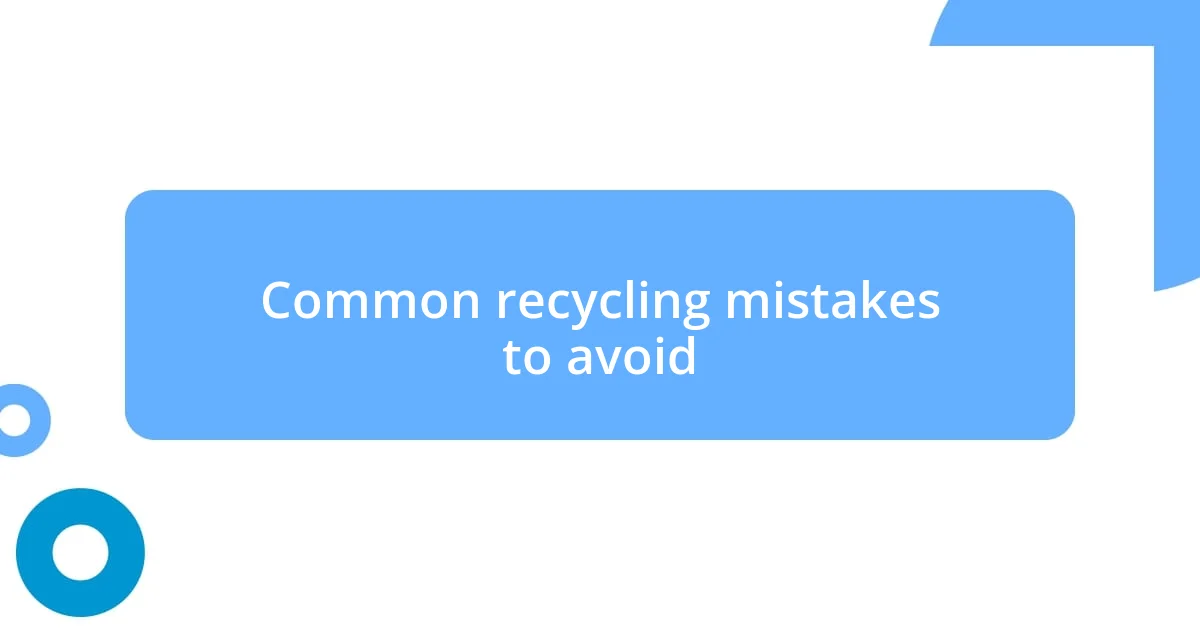
Common recycling mistakes to avoid
One common mistake I see often is the contamination of recyclables. I remember a time when I tossed a dirty pizza box into the recycling bin, thinking it was harmless. It dawned on me later that that grease and residue can ruin an entire batch of recyclables, negating the efforts of everyone involved. It’s crucial to ensure that items are clean and dry before recycling them.
Another pitfall is the misconception that all plastics are recyclable. I was guilty of this early on, tossing in plastic clamshell containers for berries, only to find out later they aren’t accepted by my local facility. I learned to check the recycling symbols on items carefully; not every number is recyclable in every area. Being mindful of what goes into my bin not only supports better recycling practices but also helps me feel more informed and empowered.
Lastly, many people neglect to stay updated on local recycling guidelines. I’ve learned the hard way that these rules can change, sometimes even yearly. I now make it a point to regularly consult my local waste management website to stay informed. It saves me time and avoids frustration when it comes to sorting, knowing I’m aligning my efforts with the current regulations. So, why not take a few minutes to double-check? It might save a lot of time and confusion later on!
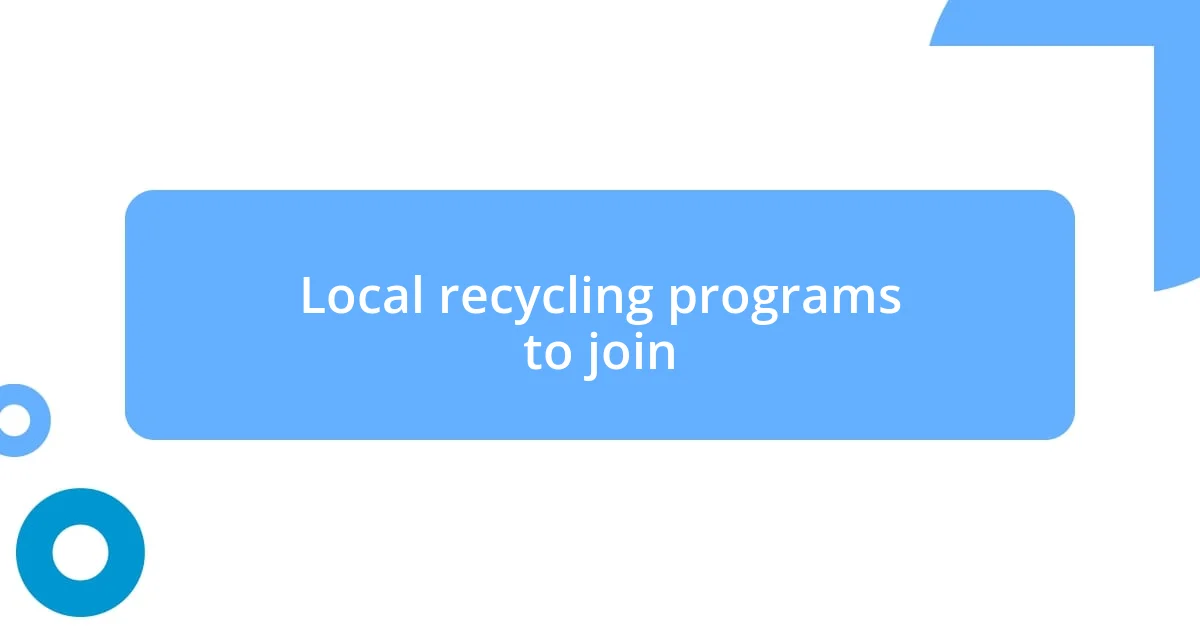
Local recycling programs to join
Joining a local recycling program can be a game-changer. I still clearly remember my excitement when I discovered a neighborhood initiative that collected hard-to-recycle items, like electronics and batteries. Not only did it make my life easier, but it also felt incredibly rewarding knowing that my contributions were genuinely making an impact in the community.
I’ve also gotten involved with community clean-up events where people gather to pick up litter and sort recyclables right on the spot. It might sound like extra work, but the camaraderie is invigorating! I can’t tell you the last time I felt so connected to my neighbors and passionate about a cause. Plus, seeing the immediate results of our efforts is uplifting—it’s proof that little actions can lead to significant changes.
Don’t overlook local workshops and events that teach effective recycling practices. I participated in one recently, and it completely opened my eyes. I realized how much I didn’t know about what could and couldn’t be recycled. The personal stories shared by fellow participants about their experiences made it all the more engaging. Have you ever considered how much more we can achieve together when we share knowledge? It’s moments like these that inspire us to take recycling seriously and empower us to make informed choices.
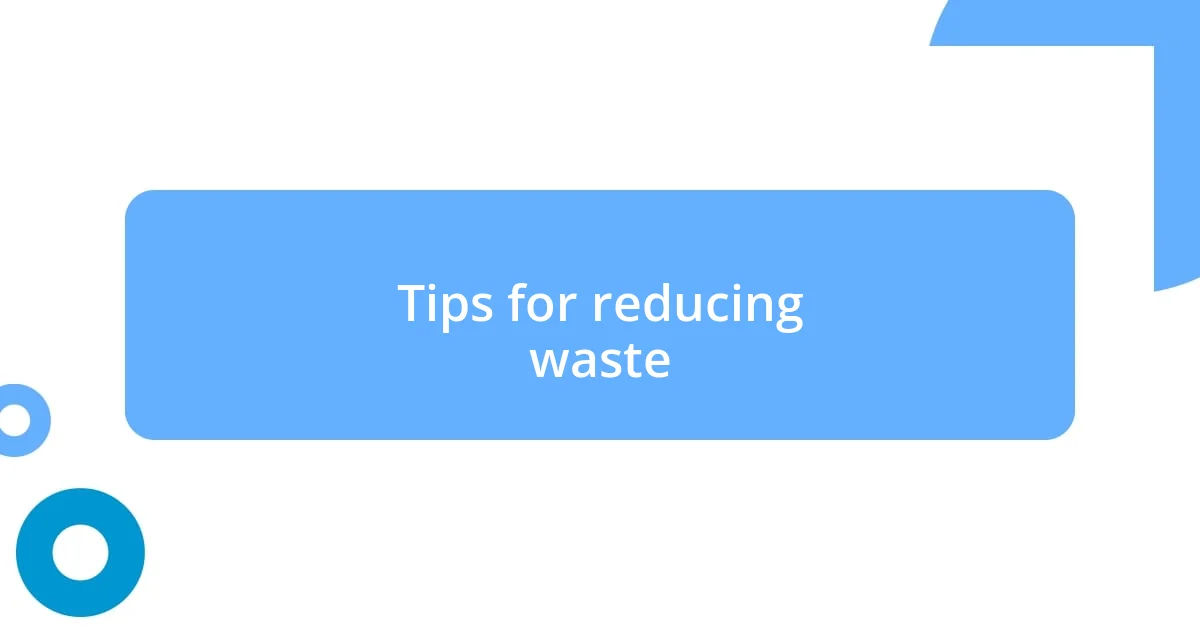
Tips for reducing waste
When it comes to reducing waste, one tip I’ve found incredibly effective is to embrace the art of composting. I remember when I first started, my kitchen scraps felt like a burden instead of an opportunity. Now, tossing in vegetable peels and coffee grounds feels rewarding. It’s amazing to think that what once seemed like trash can transform into nutrient-rich soil for my garden. Have you thought about how much less waste you’d have if you tried composting?
Another strategy I swear by is the “one in, one out” rule. Whenever I buy something new, I make it a point to let go of an old item. This habit not only curbs clutter in my home but also forces me to consider my purchases more carefully. Recently, I donated a pair of shoes I rarely wore, and it felt liberating to know someone else could use them. It raises an important question: how often do we buy just for the sake of having more? This mindset can shift how we view consumerism.
Lastly, I’ve found that meal planning helps minimize food waste tremendously. On weeks I make the effort to plan my meals, I end up with fewer leftovers that get forgotten in the fridge. It’s all about being intentional with what I buy and preparing only what I need. I still recall the satisfaction of finishing every dish on my plate instead of tossing out spoiled food, which prompted me to reflect: what other small changes can lead to significant impacts on waste reduction?
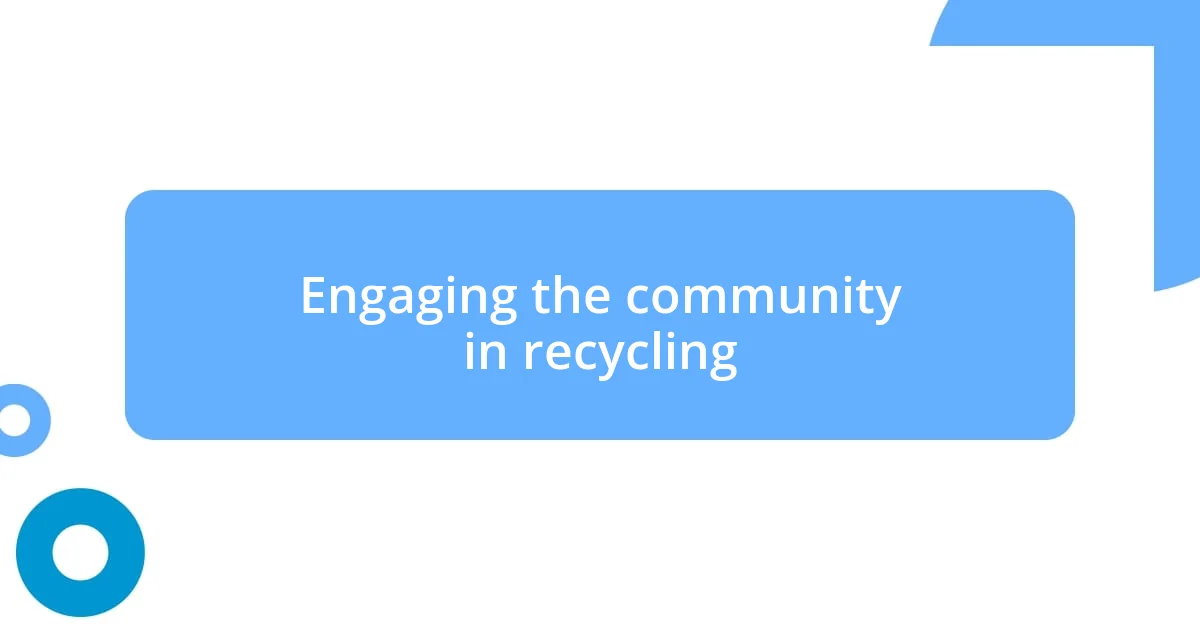
Engaging the community in recycling
I’ve found that organizing a neighborhood recycling challenge can spark a thrilling sense of competition and community spirit. I remember the last time we did this; friends and families teamed up to collect as much recyclable material as possible in a week. The excitement was contagious—everyone was checking in to share their progress, and it really highlighted how much waste we often overlook. Have you ever thought about how a little friendly rivalry can motivate us all to do better?
Participating in community art projects using upcycled materials has been another engaging avenue for me. One time, I joined a group that turned old cans and bottles into vibrant sculptures for a local park. Not only did it bring together diverse talents, but it also shed light on the creativity possible in recycling efforts. It made me wonder: how often do we consider the potential of our waste beyond its original purpose? Seeing those sculptures displayed created a sense of pride and ownership for all of us involved.
Lastly, I really believe in the power of storytelling to engage the community around recycling. I’ve shared personal experiences at local schools, discussing my journey to reduce waste and how it’s transformed my life. The follow-up conversations were enlightening—many kids were curious about what they could do. Hearing their ideas reminded me that every generation plays a crucial role in pushing the recycling narrative forward. How inspiring is it to see young minds eager to make a difference?


